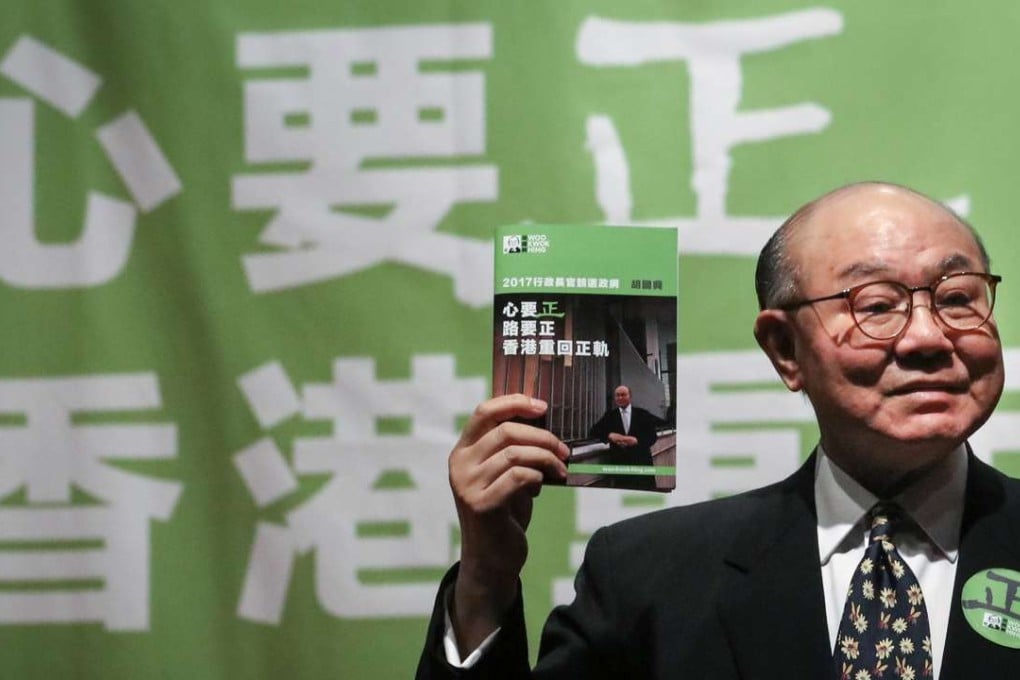Advertisement
Political reform tops election platform of Hong Kong chief executive hopeful Woo Kwok-hing
Retired judge also wants to scrap controversial primary school tests and build housing on brownfield sites
Reading Time:2 minutes
Why you can trust SCMP
0

Chief executive contender Woo Kwok-hing on Wednesday announced his election platform with policies incumbent Leung Chun-ying failed to deliver, from political reform to the abolition of a controversial primary school exam.
But much as the retired judge stressed his willingness to improve the electoral system, his proposal sparked doubt among pan-democrats, who are expected to be key Woo lobbying targets.
Taking the stage alone – with his supporters yet to make a public appearance except for Andy Ho On-tat, a top aide to former chief executive Donald Tsang Yam-kuen – Woo, 70, on Wednesday handed out his 47-page booklet in Chinese at Shue Yan University.
In introducing his platform, Woo maintained he was the best candidate even though the chief and financial secretaries might also enter the race.
Asked how he would compare himself to John Tsang Chun-wah , who quit as financial secretary on Monday, to secure the support of pan-democrats, Woo said: “Those aspirants who have been waiting, the pan-democrats know full well what they are waiting for. What they wait for runs against pan-democrats’ principles. They should not support those candidates.”
Woo made political reform his top priority, vowing to broaden the electoral roll of the Election Committee that will select the city’s leader in March from 250,000 to one million voters, and eventually to three million in the next two terms of government to cover all eligible voters.
Advertisement